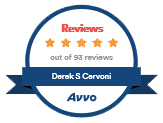-1.png)
At the end of a long, hard day at work, the idea that it would be nicer to not work at all may come to mind. The reality, though, is not nearly as relaxing as one would think.
For hundreds of Americans, being on disability is a struggle. Often they can’t perform the work they’ve been trained to do, and they turn to some form of disability insurance to provide for themselves. But the question is: where do they turn?
Federal Vs. Private
Social Security Disability Insurance (SSDI) is probably what first comes to mind when someone says they’re on disability. This is a payment from the government that draws on Social Security funds to provide for an individual with a proven work history.
But there’s also Long Term Disability (LTD) insurance benefits. This works in a similar way to SSDI, in that it provides payments for those who can’t work due to a disability, but it comes from a private company rather than the government.
Let’s take a closer look at both of these options to get a better idea of what they offer.
SSDI
Social Security, for those who don’t know, is a collection fund for US citizens pooling from small amounts taken by a payroll tax, directly from your paycheck. Most people are familiar with the Social Security retirement fund, which can be claimed by retirees as early as 62, but there’s also a smaller fund set aside for disability.
If someone finds themselves disabled to the point that they can’t work, they can apply for benefits through the SSDI fund. Since it’s government-funded and maintained, there’s no real forethought needed, and no monthly premiums or other payments required.
On the other hand, it can be difficult to receive these benefits. Not only is the process itself notoriously challenging, but even people who have worked and contributed to the federal SSDI pool are not guaranteed to be found eligible for benefits.
In order to be eligible for SSDI benefits, applicants need to have a minimum of 40 credits with Social Security–with 20 earned in the last ten years prior to their disability–just to be fully insured. This hurdle can sometimes preclude otherwise potentially eligible claimants.
Additionally, SSDI comes with a strict “any-occupation” definition of disability; this means that an individual must be incapable of any work to receive benefits.
And, once a person does receive benefits, those SSDI benefits are not necessarily a wage substitute, and may not be sufficient to live on.
Long Term Disability Insurance Benefits
Long Term Disability (LTD), as we mentioned before, is private disability insurance. For this benefit, a person would go through a private insurance company and apply for LTD before they are disabled, then pay a monthly premium every month like other kinds of insurance.
LTD insurance often provides 60-80% of the disabled party’s former paycheck. It also allows for customization in how much work they’re allowed to do to keep receiving benefits–for instance, some plans allow individuals to choose an option that allows them to work in some capacity while receiving benefits, whether that’s restricted to part-time or contract work or simply not being able to work in their former career.
Despite the positives, there are downsides to LTD insurance as well. While it’s easier to get approved, the monthly premiums are paid ahead of time–which can become very costly.
Additionally, premiums increase as you age–an LTD plan for a 20-year-old is much cheaper than the same plan for a 40-year-old. And, of course, there’s the issue of paying for disability insurance before you become disabled, without knowing if you will ever be disabled. Between that and the high costs, many people don’t have an LTD insurance plan in place.
Which Should You Choose?
Ultimately, both SSDI and LTD come with pros and cons. And, in both cases, you would want them explicitly for a long term disability; it can take up to 5 months for an eligible recipient to actually start receiving payments.
Ideally, in the case of a long term disability, being able to supplement with both options could be your best-case scenario.
If you’ve recently become disabled and don’t know how to proceed with an SSDI claim, call Cervoni Disability Law, PLLC. We’ll do our best to ensure you get the benefits you need with the care and respect you deserve.








